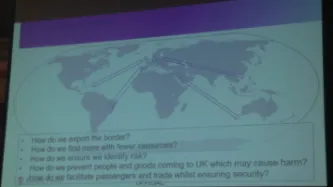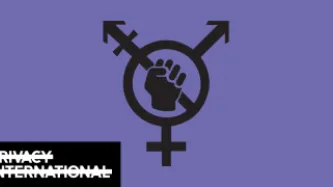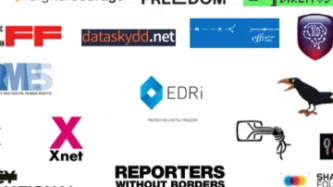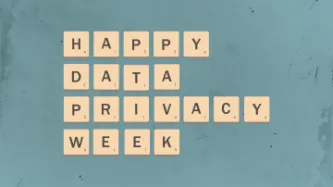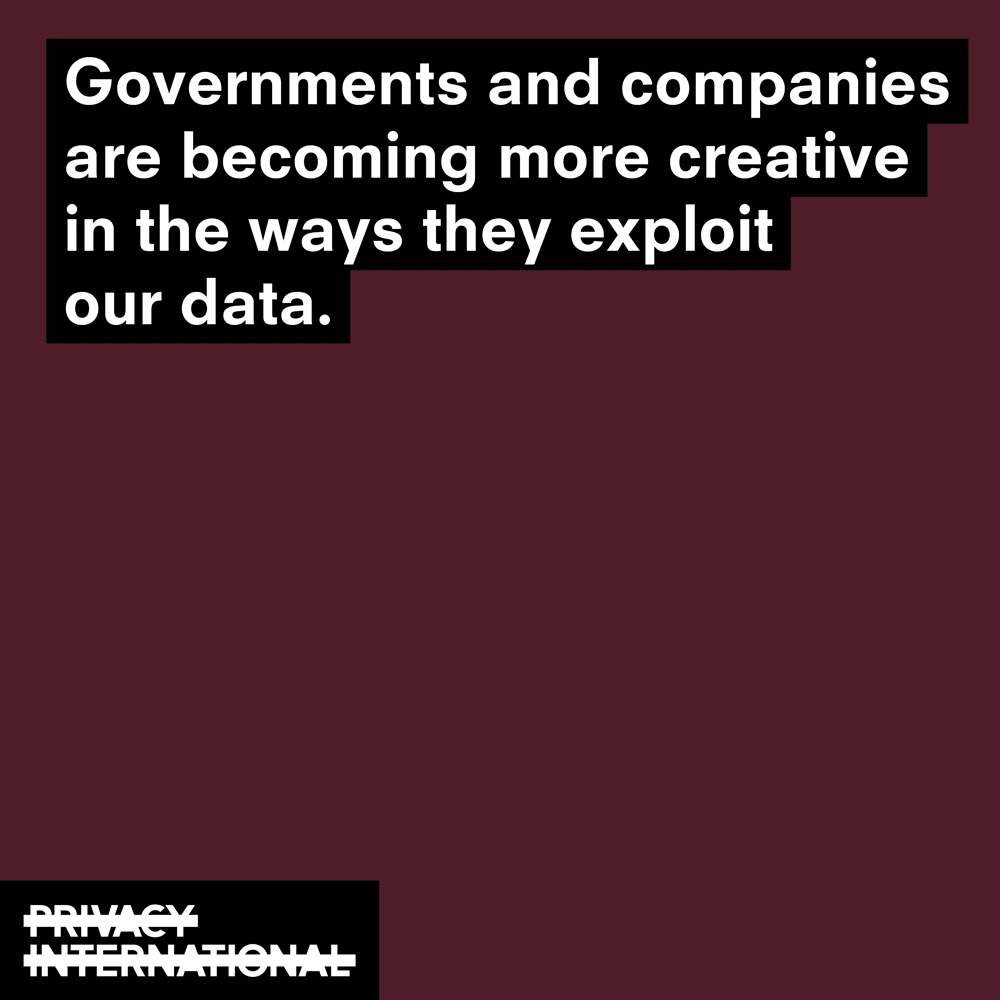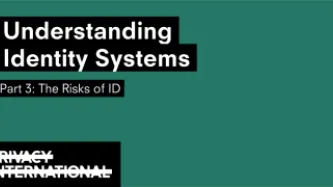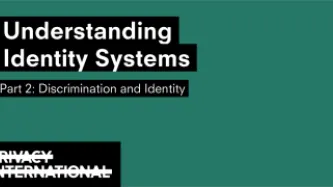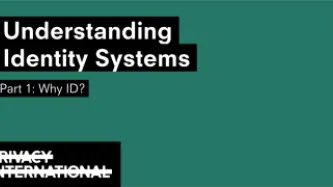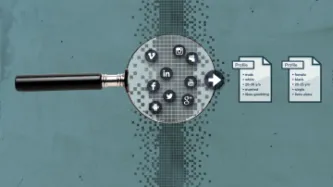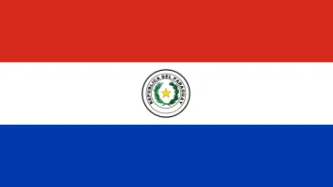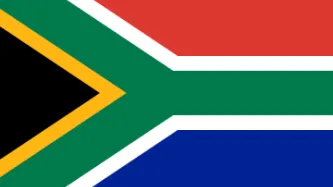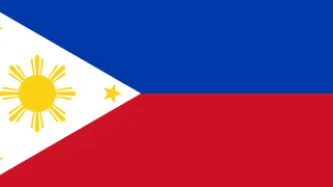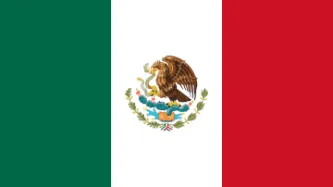Search
Content type: Examples
Facebook's latest tool for inspecting political ads showed that in the run-up to the US mid-term elections in November 2018, many of the same politicians who had been questioning Facebook about privacy and leaked user data were spending campaign funds on advertisements on the service. Between 2014 and 2018, the digital percentage of political spending rose from 1% to 22% (or about $1.9 billion); between May and November 2018 political spending on Facebook and its subsidiaries came to nearly $…
Content type: News & Analysis
According to the International Organization for Migration, an estimated 258 million people are international migrants – that is, someone who changes their country of usual residence, That’s one in every 30 people on earth.
These unprecedented movements levels show no sign of slowing down. It is predicted that by 2050, there will be 450 million migrants across the world.
Nowadays, it is politically acceptable to demonise migrants, and countless leaders have spewed divisive and xenophobic…
Content type: Long Read
The UK border authority is using money ring-fenced for aid to train, finance, and provide equipment to foreign border control agencies in a bid to “export the border” to countries around the world.
Under the UK Border Force’s “Project Hunter”, the agency works with foreign security authorities to bolster their “border intelligence and targeting” capabilities with UK know-how and equipment.
As well as the provision of equipment and training, the Border Force is also advising countries on…
Content type: Advocacy
Cases of female and gender diverse public figures being targeted with online harassment have become sadly common in the news. Female politicians are particularly affected – although journalists and in particular sports commentators are also frequently targeted as well. In some cases, the harassment goes as far death and rape threat for women and gender diverse people who dare speaking publicly. Beyond the freedom of speech implications – as we risk seeing women and gender diverse people being…
Content type: News & Analysis
The Committee on Foreign Investment in the United States (CFIUS) is trying to force the Chinese owner of the gay dating app Grindr to sell the app because of national security concerns. This is the first time the committee has considered the national security implications of a foreign social media app.
Early last year, the Chinese company Beijing Kunlun Tech purchased the Californian-based dating app. Kulun had already owned 60 per cent of Grindr since 2016. Yet, it is only now – with an…
Content type: News & Analysis
This past weekend, in an Op-Ed in the Washington Post, Mark Zuckerberg called for new regulations to address harmful content, electoral integrity, privacy and data portability.
Nine years since he proclaimed that privacy is no longer a social norm, four years since Facebook noticed broadscale harvesting and exploitation of their users' data by third party companies and chose not to tell us about it, two years since he denied there were any abuses of data in political campaigns, and…
Content type: News & Analysis
Planning and participating in peaceful protests against governments or non-state actors’ policies and practices requires the capacity of individuals to communicate confidentially without unlawful interference. From protests in support of LGBTI rights to protests against specific projects that undermine local communities’ wellbeing, these movements would not have been possible without the ability to exchange ideas and develop plans in private spaces.
Unlawful interference with…
Content type: State of Privacy
Introduction
Acknowledgment
The State of Surveillance in Tunisia is the result of an ongoing collaboration by Privacy International and partners.
On 14 February 2023, the United Nations High Commissioner for Human Rights voiced concern over the deepening crackdown in Tunisia targeting perceived political opponents of President Kais Saied as well as civil society.
We have updated this page to reflect important changes in the state of surveillance in Tunisia.
Key privacy facts
1.…
Content type: News & Analysis
At Privacy International, we talk about: “the world being on fire.”We say it to talk about the recurring threats to our democracies, the elections of authoritarian leaders, the current political climate… Or the actual climate. More often than not, we use it to talk about the (lack of) security in the design and implementation of computer systems.
But there is another kind of fire. The fourth wave of feminism – the one that contributed to the protests following the 2012 gang rape of…
Content type: Virtual Machine
The documentation below is a copy of the documentation found on Github: Interception environment on Github
Privacy International's data interception environment
Version: 2.1.2-20190730
Privacy International's data interception environment
Quick Start Guide
Step 0 - Prerequisites
Step 1 - Download
Step 2 - Importation
Step 3 - Initialising
Step 4 - Setup
Step 5 - Capture
Step 6 - Notes for Android Nougat or Later
Background
Theory
Implementation
Virtualbox (6.0.4)
Debian 10 (Buster)…
Content type: News & Analysis
At the beginning of November 2018, the first GDPR-related privacy and freedom of expression case arose in Romania in connection to the publication by the RISE Project of several articles about a corruption investigation. The articles reported a close relationship between a road construction company that is currently under investigation for fraud, European funds, and a high-profile politician.
Shortly after the first article was published, the Romanian data protection authority (“ANSPDCP”) sent…
Content type: News & Analysis
One of the UN's largest aid programmes just signed a deal with the CIA-backed data monolith Palantir
Last week, the UN's World Food Programme (WFP) announced a partnership with Palantir, the controversial US-based data analytics company with deep links to US intelligence agencies. This is a deal that has serious consequences for the privacy and security of the 90-million-plus recipients of WFP aid each year. The reaction to the news that WFP and Palantir have entered into this partnership, amongst many in the data and development community was immediate, and visceral. After all, Palantir has a…
Content type: Examples
In September 2018, the attorney general of the US state of New Mexico filed suit against Lithuania-based Tiny Lab Productions claiming that the maker of the children's app Fun Kid Racing had violated the Children's Online Privacy Protection Act (1998) by collecting location and other data about the children playing the game. The suit also included online ad businesses run by Google, Twitter, and three other companies, arguing that Google's inclusion of the app in the family section of its Play…
Content type: Long Read
Over the past year, the Privacy International Network has uncovered, campaigned, and advocated on how trends in surveillance and data exploitation are increasingly affecting our right to privacy.
To celebrate Data Privacy Day on 28 January, we shared a full week of stories and research, exploring how countries are addressing data governance, and the implications for our security and privacy.
Monday - Exposing Harms, Fighting Back
It is often communities who are already the most…
Content type: Long Read
During the last World Economic Forum in Davos, the CEO of Microsoft joined the chorus of voices calling for new global privacy rules, saying the following in regard to the new European General Data Protection Regulation (GDPR):
“My own point of view is that it's a fantastic start in treating privacy as a human right. I hope that in the United States we do something similar, and that the world converges on a common standard."
We have come a long way. From tech companies fighting and…
Content type: Long Read
The Privacy International Network is celebrating Data Privacy Week, where we’ll be talking about how trends in surveillance and data exploitation are increasingly affecting our right to privacy. Join the conversation on Twitter using #dataprivacyweek.
Since 2014, the Privacy International Network has produced State of Privacy reports, a collaborative effort to record global privacy and related issues.
As we close Data Privacy Week this year, we’re pleased to share an update of the…
Content type: Explainer
This is the third part of Understanding Identity Systems. Read Part 1: Why ID?, and Part 2: Discrimination and Identity.
Biometrics
Biometrics are the physiological and behavioural characteristics of individuals. This could be fingerprints, voice, face, retina and iris patterns, hand geometry, gait or DNA profiles. However, the legal definition of ‘biometrics’ may differ – in some contexts, it may be defined by law, whereas in others it may not have, or only have…
Content type: Explainer
This is the second part of Understanding Identity Systems. Read Part 1: Why ID?, and Part 3: The Risks of ID.
The existing identity landscape
Every country has an existing landscape of ways in which people can identify themselves. This can include an existing ID card system, but also a range from birth registration, to passports, to driver licenses. The effectiveness of these systems may be unevenly distributed, or otherwise problematic.
The nature of the existing ID landscape…
Content type: Explainer
Introduction
Of all the data-intensive initiatives that a government can introduce, some of the largest are ID systems. They have implications across a broad range of human and civil rights. How do we begin to critique an ID system, to begin to understand its strengths and weaknesses? There are a series of issues that we believe should be addressed in the development of any ID system.
This could be of particular relevance to civil society organisations (CSOs): this is because civil…
Content type: Long Read
The Privacy International Network is celebrating Data Privacy Week, where we’ll be talking about how trends in surveillance and data exploitation are increasingly affecting our right to privacy. Join the conversation on Twitter using #dataprivacyweek.
Innovations in surveillance and data exploitation present challenges in the fight to protect personal data across the world. Since 1990 we have been working to build a global movement through working with others - from leading civil society…
Content type: Long Read
The Privacy International Network is celebrating Data Privacy Week, where we’ll be talking about how trends in surveillance and data exploitation are increasingly affecting our right to privacy. Join the conversation on Twitter using #dataprivacyweek.
It is no mystery that data exploitation is part of most consumer-oriented tech companies’ business models. A big part of our lives is recorded and exploited, from our web searches, to our personal communications, location, and our shopping habits…
Content type: State of Privacy
Table of contents
Introduction
Right to Privacy
Communication Surveillance
Data Protection
Identification Schemes
Policies and Sectoral Initiatives
Introduction
Acknowledgement
The State of Privacy in Paraguay is the result of an ongoing collaboration by Privacy International and TEDIC in Paraguay.
Key privacy facts
1. Constitutional privacy protection: The constitution does not mention the word privacy but protects private life under the "right to intimacy."
2. Data protection…
Content type: State of Privacy
Table of contents
Introduction
Right to Privacy
Communication Surveillance
Data Protection
Identification Schemes
Policies and Sectoral Initiatives
Introduction
Acknowledgment
The State of Privacy in Lebanon is the result of an ongoing collaboration between Privacy International and SMEX.
Key privacy facts
1. Constitutional privacy protection: The Lebanon constitution does not explicitly mention the right to privacy.
2. Data protection law: The Electronic Transactions and…
Content type: State of Privacy
Table of contents
Introduction
Right to Privacy
Communication Surveillance
Data Protection
Identification Schemes
Policies and Sectoral Initiatives
Introduction
Acknowledgement
The State of Privacy in Colombia is the result of an ongoing collaboration by Privacy International and Fundación Karisma and Dejusticia.
Key Privacy Facts
1. Constitutional privacy protection: The constitution contains an explicit protection of the right to privacy (Article 15 of the 1991 constitution).
2…
Content type: State of Privacy
Table of contents
Introduction
Right to Privacy
Communication Surveillance
Data Protection
Identification Schemes
Policies and Sectoral Initiatives
Introduction
Acknowledgement
The State of Privacy in Uganda is the result of an ongoing collaboration by Privacy International and Unwanted Witness.
Key privacy facts
1. Constitutional privacy protection: The constitution contains an explicit protection of the right to privacy (Art. 27).
2. Data protection law: There is no…
Content type: State of Privacy
Table of contents
Introduction
Right to Privacy
Communication Surveillance
Data Protection
Identification Schemes
Policies and Sectoral Initiatives
Introduction
Acknowledgment
The State of Privacy in South Africa is the result of an ongoing collaboration by Privacy International and the Right2Know coalition.
Key Privacy Facts
1. Constitutional privacy protections: Section 14 of the Constitution of the Republic of South Africa protects the right to privacy.
2. Data protection laws…
Content type: State of Privacy
Table of contents
Introduction
Right to Privacy
Communication Surveillance
Data Protection
Identification Schemes
Policies and Sectoral Initiatives
Introduction
Acknowledgement
The State of Privacy in the Philippines is the result of an ongoing collaboration by Privacy International and Foundation for Media Alternatives.
Key privacy facts
1. Constitutional privacy protection: The constitution contains an explicit protection of the right to privacy (Art. III, section 3).
2.…
Content type: State of Privacy
Table of contents
Introduction
Right to Privacy
Data Protection
Identification Schemes
Policies and Sectoral Initiatives
Introduction
Acknowledgment
The State of Privacy in Pakistan is the result of an ongoing collaboration by Privacy International and the Digital Rights Foundation.
Between 2014-2016, Bytes for All contributed to previous versions of the 'Data Protection' sections of this briefing.
Key Privacy Facts
1. Constitutional privacy protections: Article 14(1) of…
Content type: State of Privacy
Table of contents
Introduction
Right to Privacy
Communication Surveillance
Data Protection
Identification Schemes
Policies and Sectoral Initiatives
Introduction
Acknowledgment
The State of Surveillance in Morocco is the result of an ongoing collaboration by Privacy International and its partners.
Key privacy facts
1. Constitutional privacy protection: The constitution contains an explicit protection of the right to privacy.
2. Data protection law: There is a data…
Content type: State of Privacy
Table of contents
Introduction
Right to Privacy
Communication Surveillance
Data Protection
Identification Schemes
Policies and Sectoral Initiatives
Introduction
Acknowledgement
The State of Privacy in Mexico is the result of an ongoing collaboration by Privacy International and Red in Defensa de los Derechos Digitales (R3D) in Mexico.
Key Privacy Facts
1. Constitutional privacy protections: The right to privacy is enshrined in article 6 of the Mexican constitution.
2. Data…


